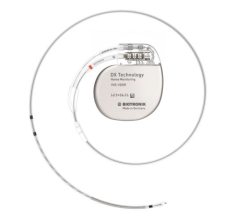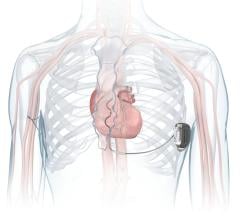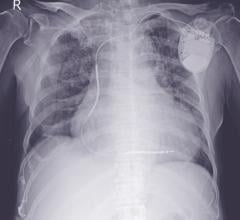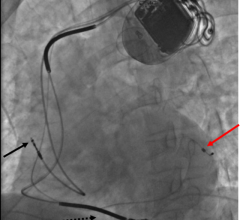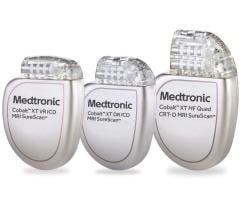May 4, 2010 — New research released this week in the Journal of the American College of Cardiology shows the value of implantable cardiac device diagnostics in identifying worsening heart failure.
The combined use of two Medtronic's diagnostic OptiVol Fluid Status Monitoring and Cardiac Compass trends can identify patients with a 5.5 times greater risk for a heart failure (HF) hospitalization with pulmonary congestion within the next month, according to findings from the PARTNERS HF (Program to Access and Review Trending Information and Evaluate Correlation to Symptoms in Patients with Heart Failure) trial.
PARTNERS HF is a prospective, observational, post-market study designed to demonstrate the value of using HF device diagnostic information to risk stratify patients.
Heart failure affects nearly 5 million Americans and related hospitalizations cost $18.8 billion annually in the United States. Heart failure patients may be candidates for cardiac resynchronization therapy-defibrillators (CRT-Ds), implantable devices that help the heart pump normally. These CRT-Ds may also include the OptiVol and Cardiac Compass diagnostic tools to help monitor symptoms in these patients.
About 1,024 CRT-D patients from 100 U.S. centers were enrolled in the PARTNERS HF study. Patients were nonrandomized and followed for 12 months.
“These findings demonstrate that routine monitoring with tools like OptiVol and Cardiac Compass can help me identify patients who are at risk for a future hospitalization,” said David Whellan, M.D., MHS, associate professor of medicine, Thomas Jefferson University Hospital in Philadelphia. “Monitoring device diagnostics every 30 days allows providers to risk stratify their patients and better identify those who should be monitored more closely.”
Traditional methods of assessing physical signs or symptoms to evaluate and predict heart failure events is only done intermittently and, consequently, may not identify patients in time to prevent imminent adverse events. While prior studies have demonstrated the ability of individual pieces of heart failure device diagnostic data to predict heart failure events, PARTNERS HF suggests that a combination of heart failure device diagnostics in a single algorithm improves the overall ability to identify those heart failure patients at the greatest risk of hospitalization.
For more information: www.medtronic.com


 January 13, 2026
January 13, 2026 


